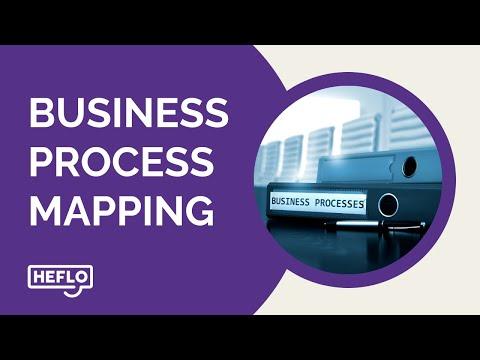Uncovering Hidden Opportunities: How Business Process Analysis Can Revolutionize Your Company

Are you looking for ways to take your company to the next level? Do you want to uncover hidden opportunities and drive your business forward? Look no further than business process analysis. This powerful approach is a game-changer when it comes to revolutionizing your company. By analyzing your existing processes and identifying areas for improvement, business process analysis can help you streamline operations, increase efficiency, and boost productivity.
In this article, we will explore the benefits of business process analysis and how it can transform your company. From identifying bottlenecks to optimizing workflows, we'll cover everything you need to know to get started. Whether you're a small business or a multinational corporation, this article will provide you with valuable insights and practical tips to apply business process analysis to your organization.
Understanding the Importance of Business Process Analysis
Business process analysis (BPA) is a systematic approach to understanding and improving the processes that drive an organization. In today's competitive landscape, where efficiency and agility are paramount, BPA emerges as a crucial mechanism for organizations aiming to enhance their operations. By examining each step in a process, businesses can identify inefficiencies, eliminate redundancies, and ensure that resources are allocated effectively. This not only leads to cost savings but also paves the way for improved customer satisfaction and loyalty.
Moreover, the importance of BPA extends beyond mere operational efficiency. It acts as a catalyst for innovation within organizations. When teams take the time to analyze their workflows critically, they often discover opportunities for new products, services, or methodologies that they had not considered previously. This innovative mindset can lead to a competitive advantage, enabling businesses to adapt to market changes quickly and effectively.
Additionally, BPA fosters a culture of continuous improvement. By regularly assessing and refining processes, organizations can instill a mindset among employees that values efficiency and effectiveness. This cultural shift not only boosts morale but also encourages teams to take ownership of their work, leading to higher levels of engagement and productivity. In essence, understanding the importance of business process analysis is the first step toward unlocking the full potential of any organization.
Key Benefits of Business Process Analysis
The benefits of business process analysis are manifold and can significantly impact an organization's bottom line. One of the most immediate advantages is the identification of inefficiencies and bottlenecks within existing processes. By pinpointing these areas, companies can streamline operations, reduce cycle times, and free up valuable resources. This operational efficiency not only leads to cost reductions but also enhances the overall performance of the organization.
Before you go, watch our video on identifying bottlenecks in business processes. It offers key insights to help you improve efficiency and boost productivity.

Another key benefit is the enhancement of decision-making capabilities. With a thorough understanding of processes, leaders can make more informed decisions based on data and insights gleaned from the analysis. This evidence-based approach empowers organizations to allocate resources more effectively, prioritize projects that deliver the most value, and respond swiftly to market demands. In essence, BPA transforms intuition-based decisions into strategic, data-driven choices that align with business goals.
Furthermore, business process analysis lays the groundwork for better customer experiences. By optimizing internal processes, organizations can deliver products and services more efficiently, resulting in faster response times and improved service quality. Happy customers are more likely to become repeat buyers and brand advocates, which can significantly boost revenue. Ultimately, the key benefits of BPA create a ripple effect that enhances not only operational performance but also customer satisfaction and loyalty.
Steps to Conduct a Business Process Analysis

Conducting a business process analysis involves several key steps that guide organizations through the evaluation and improvement of their workflows. The first step is to clearly define the process that needs to be analyzed. This includes identifying the boundaries of the process, understanding its objectives, and gathering relevant stakeholders who can provide insights. A well-defined process serves as the foundation for effective analysis and sets clear expectations for what the analysis aims to achieve.
Once the process is defined, the next step is to map it out visually. Process mapping involves creating a detailed flowchart or diagram that illustrates each step in the workflow, including decision points, inputs, and outputs. This visual representation helps teams to see the entire process at a glance and identify areas where delays or bottlenecks may occur. Mapping also facilitates communication among stakeholders, ensuring that everyone has a shared understanding of the process.
Before you leave, check out our step-by-step guide for business process mapping. It walks you through the essential steps to map your processes effectively and optimize operations.

After mapping the process, the analysis phase begins. This involves reviewing the mapped process to identify inefficiencies, redundancies, and areas for improvement. Techniques such as root cause analysis can be employed to dig deeper into specific issues, while performance metrics can provide quantitative data on how well the process is functioning. Finally, the last step involves implementing the identified improvements, monitoring their impact, and making further adjustments as necessary. By following these steps, organizations can conduct a thorough business process analysis that drives meaningful change.
Tools and Techniques for Business Process Analysis
In the realm of business process analysis, there are numerous tools and techniques available that can enhance the effectiveness of the analysis. One of the most widely used tools is process mapping software, which allows organizations to create visual representations of their workflows. Tools like HEFLO facilitate easy collaboration among team members and enable real-time updates to process maps as changes are made.
Another valuable technique is the use of value stream mapping (VSM), which focuses on analyzing the flow of materials and information through a process. This method helps organizations identify value-added and non-value-added activities, enabling them to eliminate waste and optimize efficiency. By visualizing the entire value stream, businesses can gain insights into how to streamline their operations effectively.

Additionally, Six Sigma and Lean methodologies offer structured approaches to business process analysis. Six Sigma emphasizes reducing variation and improving quality, while Lean focuses on eliminating waste and enhancing value. These methodologies employ statistical tools and techniques to analyze processes and drive improvements. By incorporating these tools and techniques into their BPA efforts, organizations can create a comprehensive approach that leads to sustained improvements and a culture of excellence.
Common Challenges in Business Process Analysis and How to Overcome Them

While business process analysis offers significant benefits, several challenges can arise during its implementation. One common obstacle is resistance to change from employees. When processes are altered, it can evoke fear and uncertainty among staff members who may be accustomed to existing workflows. To overcome this challenge, organizations should foster open communication and involve employees in the analysis process. By soliciting their input and addressing concerns, businesses can create a sense of ownership and collaboration.
Another challenge is the potential for incomplete data collection. Inadequate information can lead to misguided analysis and ineffective solutions. To address this issue, organizations must ensure that they gather comprehensive data from various sources, including quantitative metrics and qualitative feedback from stakeholders. Utilizing modern data analytics tools can help in collecting and analyzing large volumes of information, leading to more accurate insights.
Additionally, organizations may struggle with prioritizing areas for improvement among numerous processes. With limited resources, it can be difficult to determine where to focus efforts for the greatest impact. To mitigate this challenge, businesses can conduct a prioritization exercise based on criteria such as potential cost savings, impact on customer satisfaction, and alignment with strategic goals. By systematically addressing these common challenges, organizations can successfully implement business process analysis and reap its rewards.
Business Process Analysis vs Business Process Improvement: Understanding the Difference
While business process analysis and business process improvement (BPI) are often used interchangeably, they represent distinct concepts within the realm of process management. Business process analysis focuses on the examination and understanding of current workflows, aiming to identify inefficiencies and areas for enhancement. It is primarily concerned with gathering data, mapping processes, and gaining insights that will inform future changes. The objective of BPA is to lay the groundwork for informed decision-making and strategic improvements.
On the other hand, business process improvement is the actual implementation of changes based on the insights gained from the analysis. BPI takes the findings from BPA and translates them into actionable steps that enhance processes. This could involve redesigning workflows, introducing automation, or refining procedures to eliminate waste. The goal of BPI is to achieve measurable improvements in performance, such as reduced cycle times or improved quality.
Understanding the distinction between these two concepts is crucial for organizations. While both BPA and BPI are essential for driving operational excellence, they serve different purposes in the overall process management framework. BPA acts as the diagnostic phase, providing the necessary insights, while BPI is the implementation phase, where changes are made to optimize processes. Organizations that recognize and leverage both aspects can create a comprehensive strategy for continuous improvement.
Conclusion
In conclusion, business process analysis is a powerful tool that can help organizations uncover hidden opportunities and drive transformative change. By systematically evaluating existing workflows, businesses can identify inefficiencies, streamline operations, and enhance decision-making capabilities. The benefits of BPA extend beyond operational efficiency; they foster a culture of continuous improvement and innovation that can lead to sustainable growth.
As organizations embark on their journey of business process analysis, it is crucial to follow a structured approach that includes defining processes, mapping workflows, and conducting thorough analyses. By leveraging the right tools and techniques, businesses can navigate common challenges and successfully implement improvements. The success stories of organizations that have embraced BPA demonstrate its potential to revolutionize operations and create lasting value.
In an era of rapid technological advancement, business process analysis plays an integral role in digital transformation efforts. By aligning process analysis with technology adoption, organizations can ensure that their digital initiatives are strategically focused and yield meaningful results. Ultimately, by unlocking the hidden opportunities through business process analysis, companies can position themselves for success in an increasingly competitive landscape.
